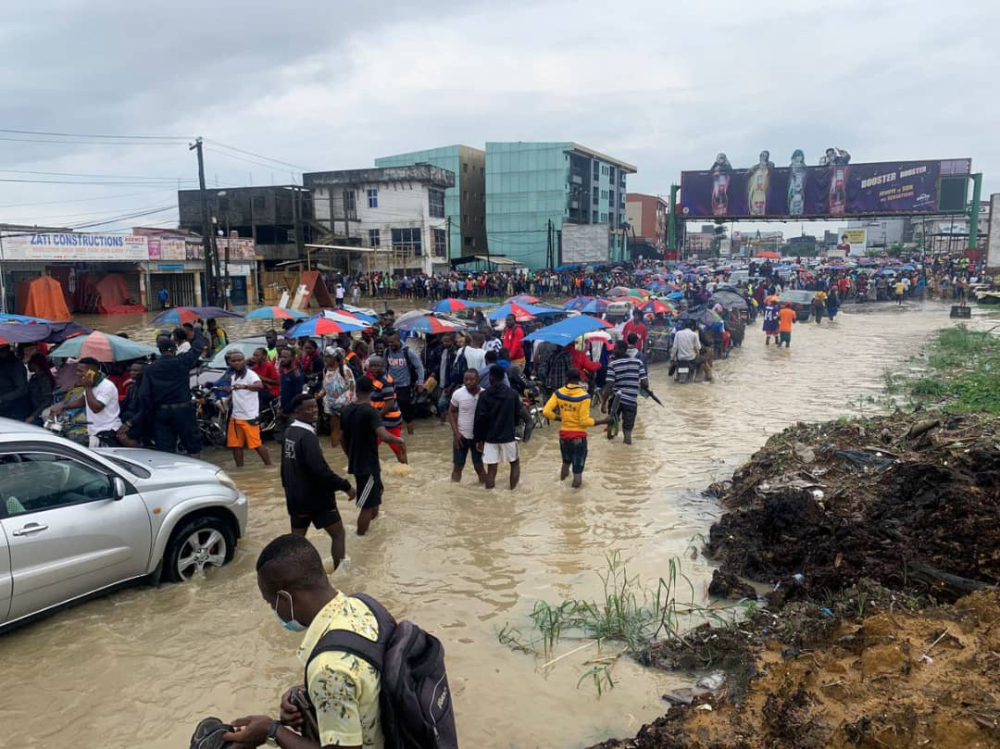Climate Observatory Warns: Beware Of Floods, Cholera, Heat Waves… In Coming Days
- by Nalova AKUA
- 16 Jul 2023 16:36
- 0 likes

In its latest climate alerts, the National Observatory on Climate Change cautions Cameroonians to anticipate risks of floods, death by drowning, and new cholera cases between July 11 to 20
July 11-20 poses high risks of floods, death by drowning, landslides, new cholera cases, destruction of electricity transmission infrastructure, heatwaves, inter alia, according to the National Observatory on Climate Change, NOCC, latest forecasts and climate alerts. The report, released Tuesday, July 11, details the risks and potential impact of extreme weather events in different parts of the country during this period. It warns that people living in the Littoral and South West regions risk experiencing cases of death by drowning due to floods while certain localities in the West and North West regions and even in the northern part of the Littoral region could experience landslides. There is also "very high risk" of an increase in cholera cases in certain large agglomerates in the Littoral, South West, Centre, and East regions due to what it terms "contamination of water points and foodstuff by contaminated run-offs".
It also hints high risk of increased degradation or destruction of b r i d g e s , c u l v e r t s and embankments, on heavily trafficked paved roads, and even motorable roads, across the national triangle due to the heavy and abundant rains. Also, risks of an increase in the number of deaths linked to the collapse of houses, due to the heavy rains have been announced in certain localities across the country. This period will also be marked by a very high risk of recording: cases of joint pain, due to the night-time cold, in people suffering from osteoarthritis and rheumatism in the West and North-West regions; cases of death due to the collapse of dwellings by heavy rains in certain localities in the West and North West regions; cases of death resulting from landslides that could be observed in certain localities in the West and North West regions; cases of death due to the collapse of dwellings by heavy rains in certain localities in the West and North West regions; flooding in certain agglomerations in the North West (Bamenda, etc.), due to the heavy
and abundant rains announced; and fog, especially in the early morning in the West and North West regions, with a consequent increase in the number of road accidents.
The NOCC also sounds the alarm on possible loss of livestock and even death of herders in some localities in the North West region, due to lightning strikes; destruction of many public infrastructures (schools, hospitals, etc.) due to heavy rains accompanied by strong winds, thunderstorms, lightning and hailstones. "This period from 11th to 20th July 2023 will be marked by heat waves in many localities in the Centre (Nanga and Boko, Mbalmayo, Bafia, Ngoro, Yoko) and East (Bertoua, Abong-Mbang, Yokadouma, Ngoyla) regions due to an increase in temperatures between 32°C and 38°C," according to the climate watchdog. There will also be heat waves in many localities in the Littoral (Mbanga, Manjo, Ndokama, Douala, Mouanko, Edea) region, due to temperatures between 32°C and 38°C. It also warns that particular attention should be paid to certain localities, which have a very high probability of recording cases of flooding, as a result of heavy and abundant rainfall. These include: Eyumojock, Babong, Bakogo, Idenau, Limbe and Tiko, in the South West region; Melong, Douala, Ndokama, Dizangue, Yabassi, Mouanko and Edea, in the Littoral region; Yaounde, in the Centre region; Kribi and Londji, in the South region; Pitoa, Garoua, in the North region; Maroua, Maga, Bogo, Dargala, Gazawa, Meri, Ndoukoula, in the Far North region; and Ngaoundere and Tignere, in the Adamawa region.








Comments